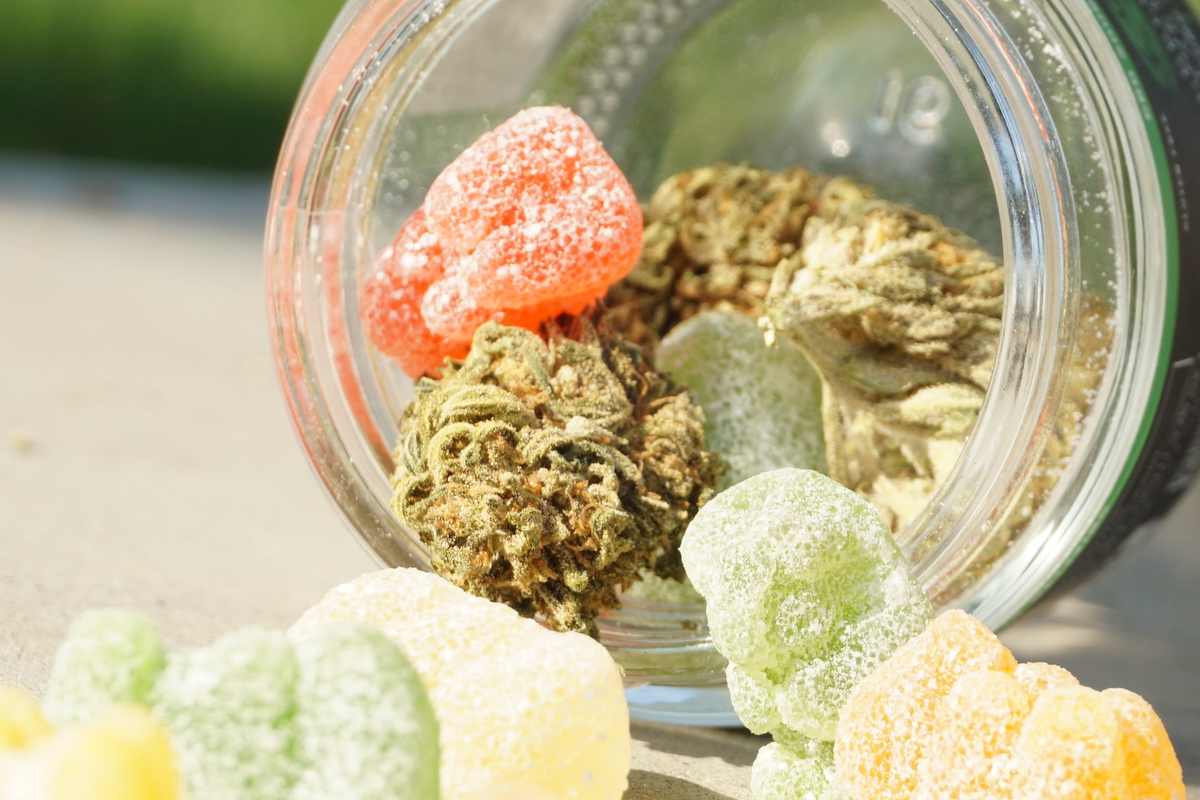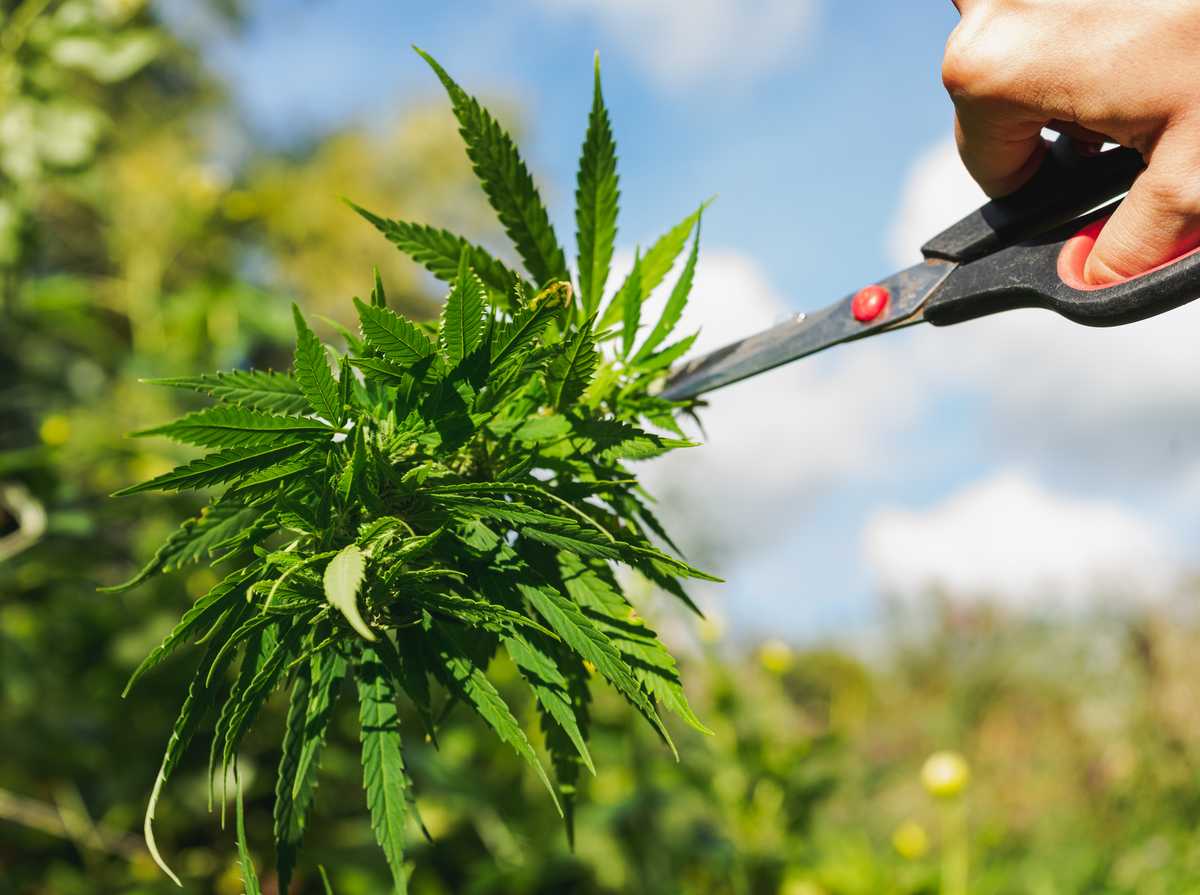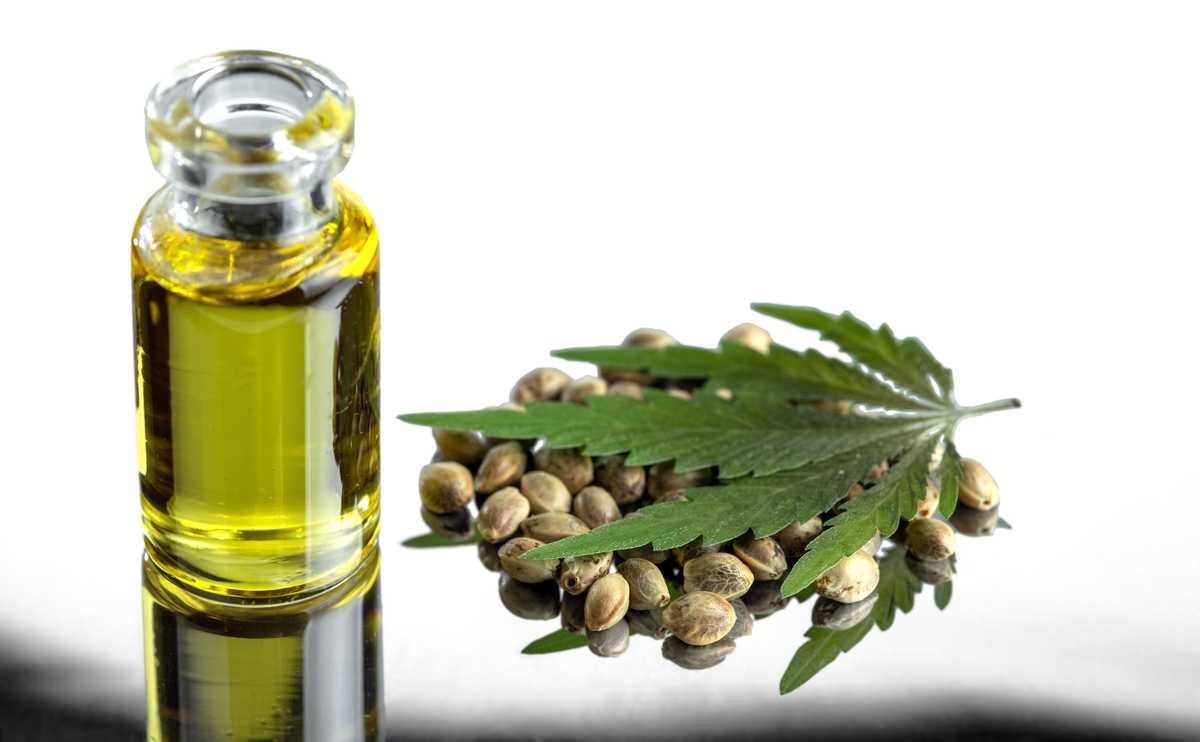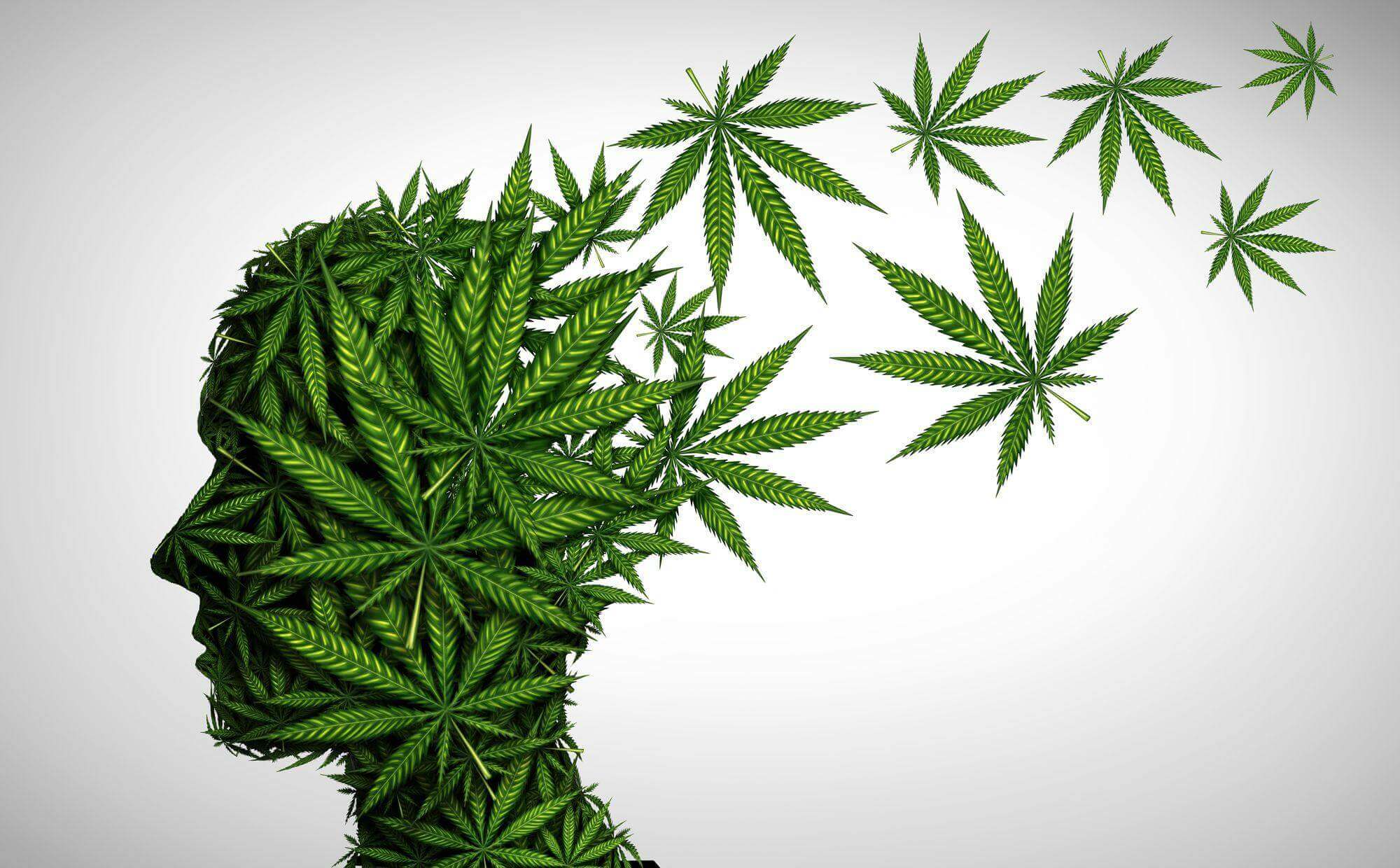
How long does Cannabis stay in your system?
- How Cannabis Effects Your Body
- How Long Does Cannabis Stay In Your System?
- What Drug Tests Detect Marijuana (THC)
- Getting Marijuana out of Your System
- How Different Marijuana Strains Effect Your Body
- How Smoking, Vaping, Or Eating Marijuana Effects Your Body
- How THC Effects Your Body
- CBD And Your Body
- Conclusion
Medicinal marijuana is legal in Australia and recreational weed is decriminalised in Canberra, but what do we know about how long cannabis stays in our body?
Cannabis includes CBD and THC; while the effects wear off in a few hours, trace amounts can be found through drug tests up to three months later. Marijuana can be found in Saliva up to 48 hours after, urine up to 45 days after and blood up to 3 months later. Fitness and diet can also help push marijuana out of your system.
Table of Contents.
Cannabis legalisation is popping up around the world for medical and recreational use, and it’s creating a lot of positive changes.
It is also leaving many people wondering how marijuana affects the human body, how long it stays in users’ systems, and how drug tests detect cannabis.
The short answer is exercise, hydrate and wait. Exercising will help remove the THC from your body’s fat cells and push out whatever remains in your blood.
Hydrating will help eliminate traces of marijuana from your system.
Its also just about time and waiting for your body to naturally push out the remaining traces of marijuana.
How Cannabis Effects Your Body
To understand how long marijuana will stay in your system, you need to understand how it was consumed, the type of cannabis taken and the user.
Marijuana and hemp are both types of cannabis. Marijuana is used as a medical and recreational cannabis drug, and hemp has little-to-no “high” or intoxicating effects.
The cannabidiol (CBD) and tetrahydrocannabinol (THC) are chemical compounds found in medicinal marijuana. These compounds stay in your saliva, fat cells, blood, urine and hair.
Australian drug tests look for the THC as it stays in your system for weeks or months after smoking or eating forms of marijuana.
The effects of marijuana vary by the person, the strain (Sativa, Indica or Hybrid), and the method of consumption (smoking, vaping, eating etc.).
Like all drugs, you must consider many other factors, including body weight, previous use, and if you’re using any other medications or alcohol with it, both of which will enhance your body’s reaction.
Here we break down how CBD, THC, different marijuana strains and methods of consumption actually effect how long cannabis stays in your system.
How Long Does Cannabis Stay In Your System?

The numerous ways to use medical marijuana make it more difficult than alcohol and other tests for drug use.
Users can smoke, vape, eat, drink, and absorb it through the membranes under their tongue (sublingual) and through the veins (transdermal.) Additionally, medicinal users can take cannabis suppositories and topical applications.
The only way to take cannabis without the high is topical. Unless you have a cut, it won’t absorb into the bloodstream and the minute amount won’t produce euphoria.
What Drug Tests Detect Marijuana (THC)
There are a few ways to detect drugs in the body. The most common drug tests used to detect marijuana are for urine, hair, oral fluid, blood, and sweat.
The THC compound in marijuana is what stays in your body for weeks or months. These are what the drug tests locate to detect marijuana use.
A drug test, as explained by PathWest Health, is about analysing and detecting trace amount of a drug that can be found in yoru urine, blood, hair, etc.
Breath
A California company has developed a THC breathalyser. A study found the device can detect THC for two to three hours after inhalation. However, this method can’t determine levels of consumption or impairment.
Urine tests
For regular users (a few times a week), urine tests can tell if you’ve used marijuana for up to four weeks. However, it’s important to note some reports of urinalysis coming back positive after over 30 days in heavy users (people who consume cannabis daily).
Additionally, THC will test positive in your urine for five hours following consumption.
Most screenings test for metabolites, which is a byproduct of THC or THC-COOH. It’s not psychoactive and stays in the body’s fat tissue. Metabolites occur for all methods of cannabis consumption. Research shows that THC-COOH levels are detectable longer for edibles.
According to a 2004 study, “Detection Times of Drugs of Abuse in Body Fluids,”
“After oral intake, the detection time in urine seems to be longer, eg, after intake of 2 brownies containing 2.8% THC, the metabolite could be detected by EMIT (cutoff 20 ng/mL) for 5.9 days.”
Testing for THC-COOH can vary for the same reasons the cannabinoid’s effect on the human body differ—Dosage and potency of the THC, route of administration, and how often the people use it, their metabolic rate and body mass.
Hair
Hair testing is the most contested way of testing for cannabis use.
The hair follicles store THC for up to 90 days and longer for some people, depending on their last haircut. The testing sample must be 1.5 inches long to complete the screening.
The reason for concern is that hair contamination can happen in multiple locations and isn’t as reliable for detecting regular use as bodily fluids.
Blood tests
Blood tests are more intrusive than other methods. However, this is the most accurate for measuring levels of THC within hours of use.
Detection is possible within seconds, but the concentration of THC begins to peak at seven to eight minutes in your plasma and hits the half-life mark around 30 minutes following smoking or vaping.
All traces of THC leave the blood about five hours following the last puff. On the other hand, the metabolites stay in the blood for 20 to57 hours for occasional users and three to thirteen days for heavy users.
Oral fluid
An oral swab tests your saliva for the presence of THC, which can stay inside your mouth until it completely metabolises, which can be 24 to 72 hours, depending on the person. Again, oral tests only work for smoking and vaporisation.
These tests only screen for THC, which has the potential to be a problem for anyone who uses CBD that has traces of THC.
Some testing services may allow a small amount of THC to account for second-hand exposure and the growing popularity of CBD products that don’t produce psychoactive effects.
In most cases, strictly CBD patients have little to worry about in terms of drug testing.
Law enforcement officials are just beginning to use tools now that test the difference between hemp and cannabis flowers. Most CBD products are still derived from hemp plants.
Along with these devices already in use, dozens of companies are working with medical cannabis researchers and law enforcement officials to develop more accurate methods of detection.
Getting Marijuana out of Your System
THC is stored in your fat cells. The more fat on your body and the longer you have regularly used marijuana, the longer it can take to get out of your system.
Some users swear that hydration and exercise can increase the rate of metabolisation and help remove it from your body faster.
Unfortunately, there isn’t any quantitative research on this topic. However, exercising before a drug test can increase the concentration of THC in the system.
It’s best to stop any forms of exercise for at least 24 hours before testing to avoid causing the THC in your fat cells to release faster and increase the concentration.
A 2013 study consisting of 14 daily cannabis users found that 35 minutes of exercise on a stationary bicycle resulted in a small but statistically relevant increase in plasma THC levels.
The tests were performed with food and after fasting but found no difference between the situations. Researchers believe the results show that working out may increase THC levels by releasing older THC from fat storage.
In conclusion, the study’s authors conclude, “These data suggest the interpretation of blood THC levels in roadside and workplace tests might be complicated by recent exercise.”
While there are many ways people claim help you have a clean drug test, only one way is 100% guaranteed—Don’t use cannabis for a few weeks for occasional users, 30 days for regular users, and 60 days or more for heavy users.
Despite the long history of cannabis use for medical and recreational purposes, researchers are still learning how the amazing plant affects everyone and how to detect different levels in the body.
The more scientists learn and understand about medical cannabis and precision dosing will help patients get proper treatment and assist law enforcement with intoxication levels and safe vehicle operation.
How Different Marijuana Strains Effect Your Body
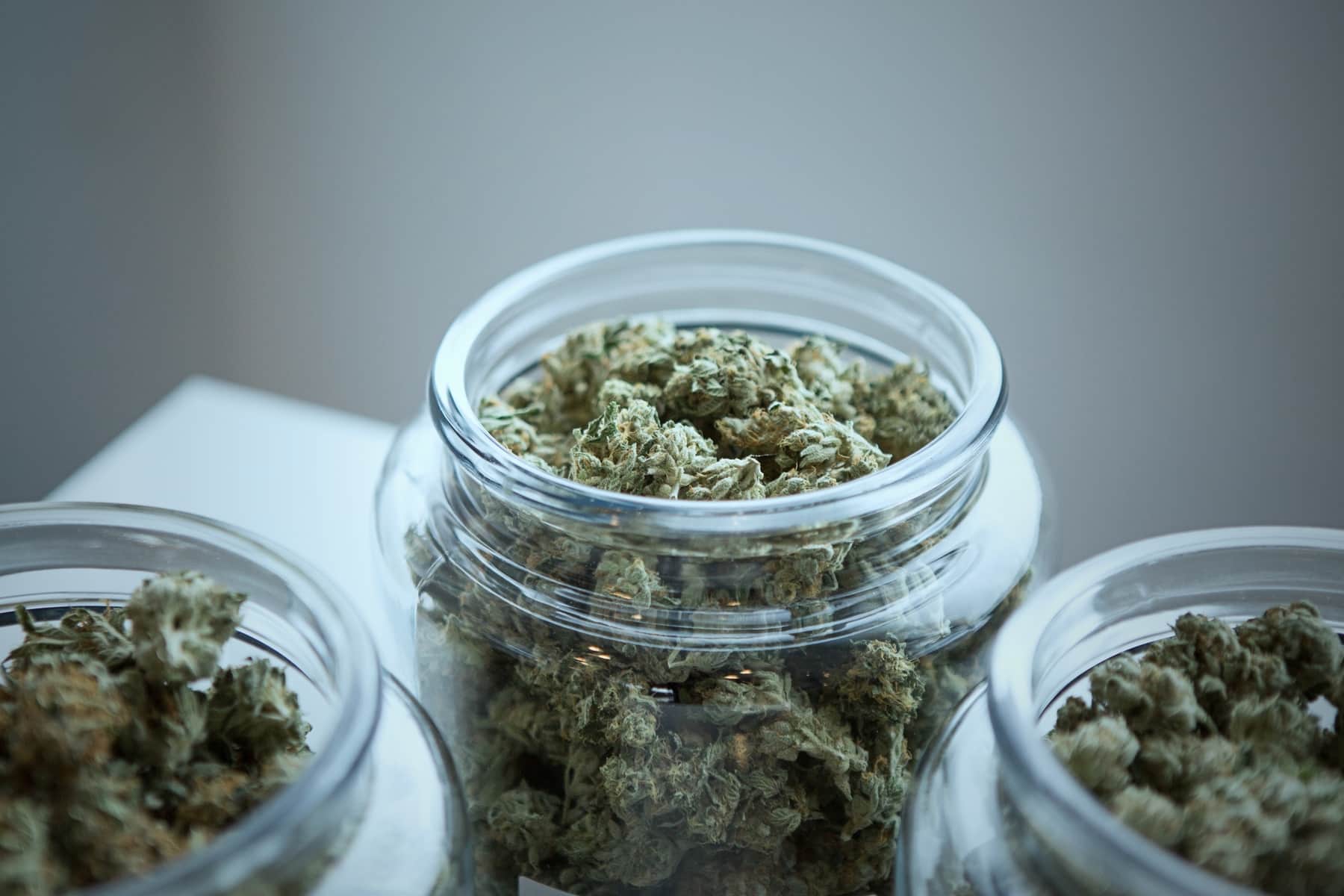
Most regular cannabis users will tell you there are dozens of varieties of marijuana. Often referred to as strains, they relate to the plant’s chemistry. Each plant is made of different percentages of more than 545 chemical compounds.
The reason this is important when understanding how long cannabis will stay in your system is that the strength and potency of the strain will dictate how much THC and CBD will stay in your system.
The strong the THC in your marijuana strain, the longer trace amounts will be found in your saliva, blood, hair or urine.
Every cannabis plant has different ratios of THC and CBD, and there are hundreds of different strains. Here are some of the most popular strains:
, terpenes, flavonoids has a different effect on the user, and there are dozens of known strains. Some of the most popular include,
Sativa
- Sour Diesel contains about 19% THC, and this will likely stay in your system for 4+ weeks.
- Jack Herer has up to 24% THC, and this will likely stay in your system for 2+ months.
- Strawberry Cough contains between 22% and 26% THC, and this will likely stay in your system for 2+ months.
Indica
- Northern Lights has about 17% to 20% THC, and this will likely stay in your system for 3+ weeks.
- Bubba Kush includes around 16.5% THC and this will likely stay in your system for 3+ weeks.
- Granddaddy Purple contains between 17% and 23% THC, and this will likely stay in your system for 3+ weeks.
How Smoking, Vaping, Or Eating Marijuana Effects Your Body
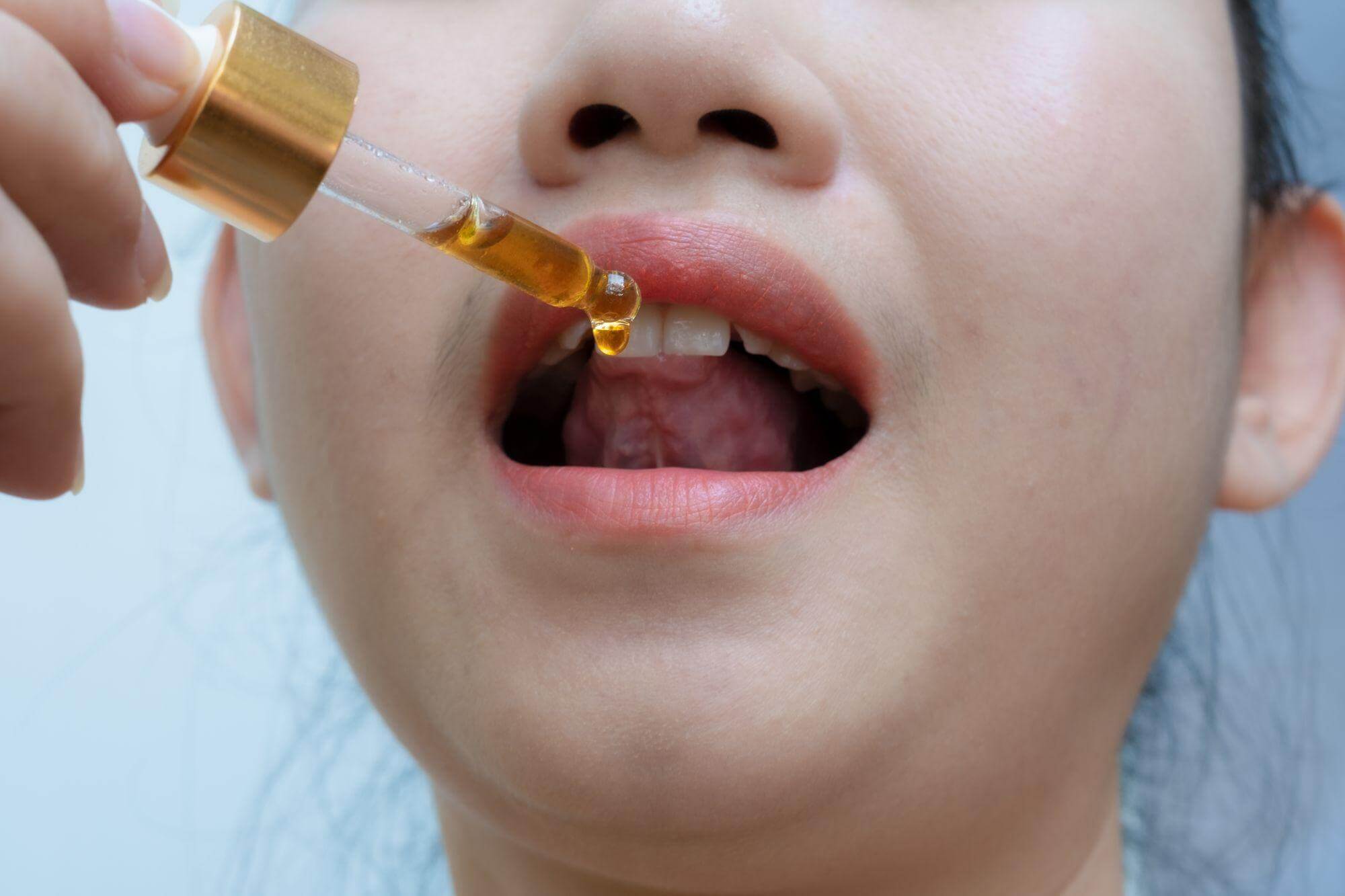
The faster the marijuana hits your system, the sooner they will leave your body. The sooner the high is over, the sooner THC will start to leave your system.
Taking a drug test while still high has the highest chance to turn up positive.
Smoking - is the fastest method with an onset of minutes that peaks after 30 to 60 minutes.
Vaping - has the same results as smoking without the dangers of smoke inhalation.
Edibles – takes the longest to take effect and varies more from patient-to-patient than other types of consumption. The onset is 45 to 90 minutes, and the duration is four to six hours, depending on the dose.
Sublingual – is the second-fastest method of delivery when taken correctly.
Transdermal – onset and duration vary significantly by the type of patch. These absorb through the blood vessels and can last from three to four or more hours. Some work for 24 to 48 hours.
Topical – These work on the top layer of skin, joints, and muscles. They don’t interact with the bloodstream and have an onset of about 20 minutes, and the duration varies by product.
Additionally, you can take cannabis in vaginal and anal suppositories. This method of delivery is ideal for taking large doses of THC without the intoxicating effects.
How THC Effects Your Body
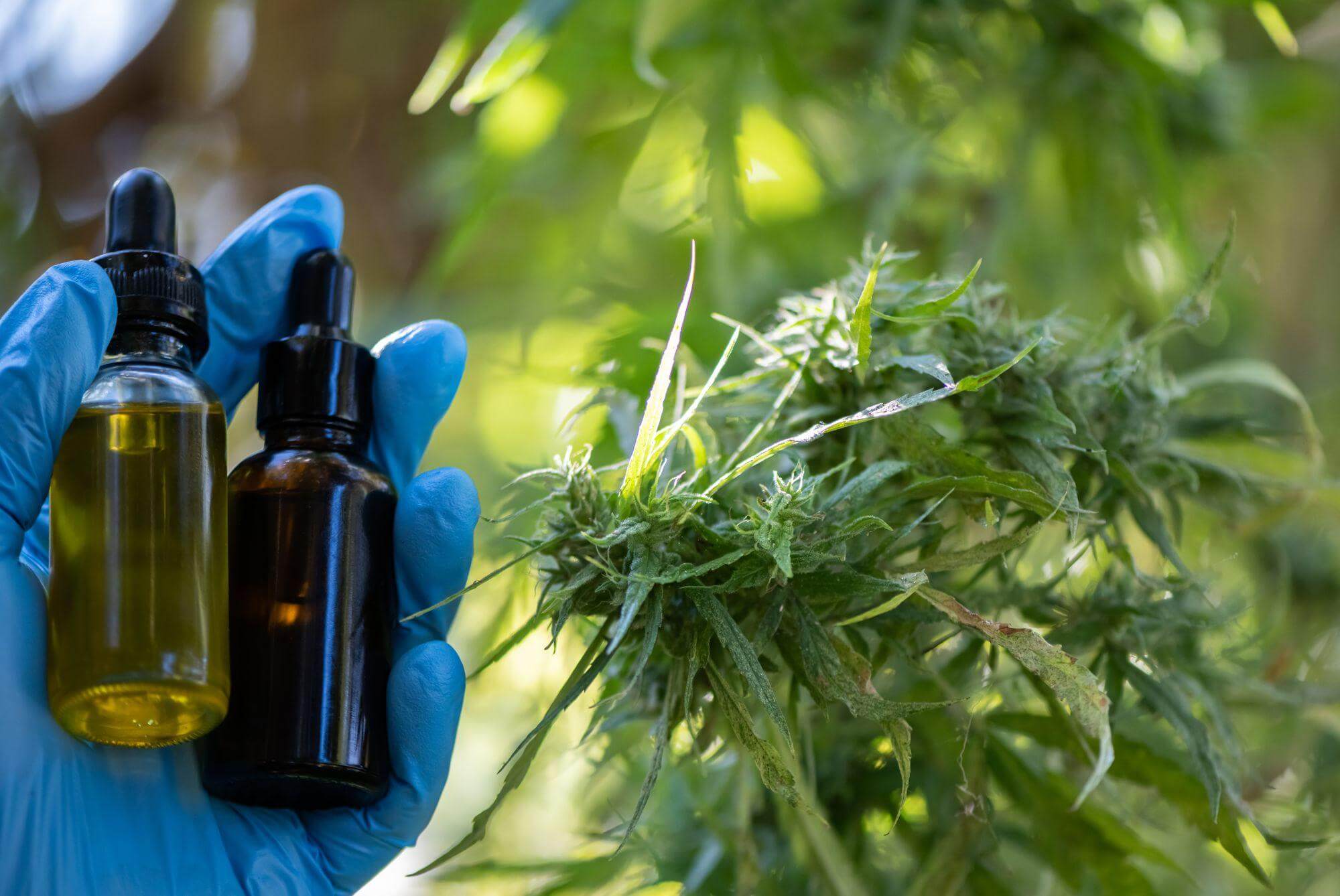
The main chemical compound in cannabis and marijuana that stays in your body and is detected on drug tests is THC.
The industry is looking for new ways to cleanse the body of THC so it becomes undetectable, but it depends its near impossible to force it out of your system. Time is the only solution.
According to Joseph Rosado, an International Cannabis Solutions medical consultant,
“Each of us has a unique metabolism that processes cannabis at a different rate. Even among people of the same gender and age, individual lifestyle choices—such as levels of exercise and eating habits—may affect the amount of time required to pass a drug test.”
Delta-9-tetrahydrocannabinol, better known as THC, has psychoactive properties that cause users to get “high.” Some people can take a small dose, such as 2.5 mg and get pain relief, and experience intense euphoria.
Users with several months or years of taking cannabis with a high percentage of THC may need much more time to remove marijuana from their system.
Short Term Effects Of THC
The most common short-term effects of THC include,
- Increased appetite
- Sense of relaxation
- Trouble focusing
- Intense focus
- Dizziness
- Altered time perception
- Sleepiness
- Pain relief
- Improved mood
Negative effects are also possible, such as,
- Restlessness
- Paranoia
- Anxiety
- Dry mouth
- Red eyes
- Rapid heart rate
- Short-term memory loss
- Confusion
All positive and negative effects have a short duration.
Long Term Effects Of THC
There are few long-term studies on the impact of marijuana and the psychoactive compound, THC.
Researchers and medical professionals are aware that long-term cannabis smokers have an increase in risks for lung and breathing-related conditions, such as pneumonia, bronchitis, and lung cancer.
These issues are due to smoking cannabis and not the plant’s compounds.
The 2016 study referenced concludes that the number of cannabis smokers also smoking tobacco increases complications with long-term research.
CBD And Your Body
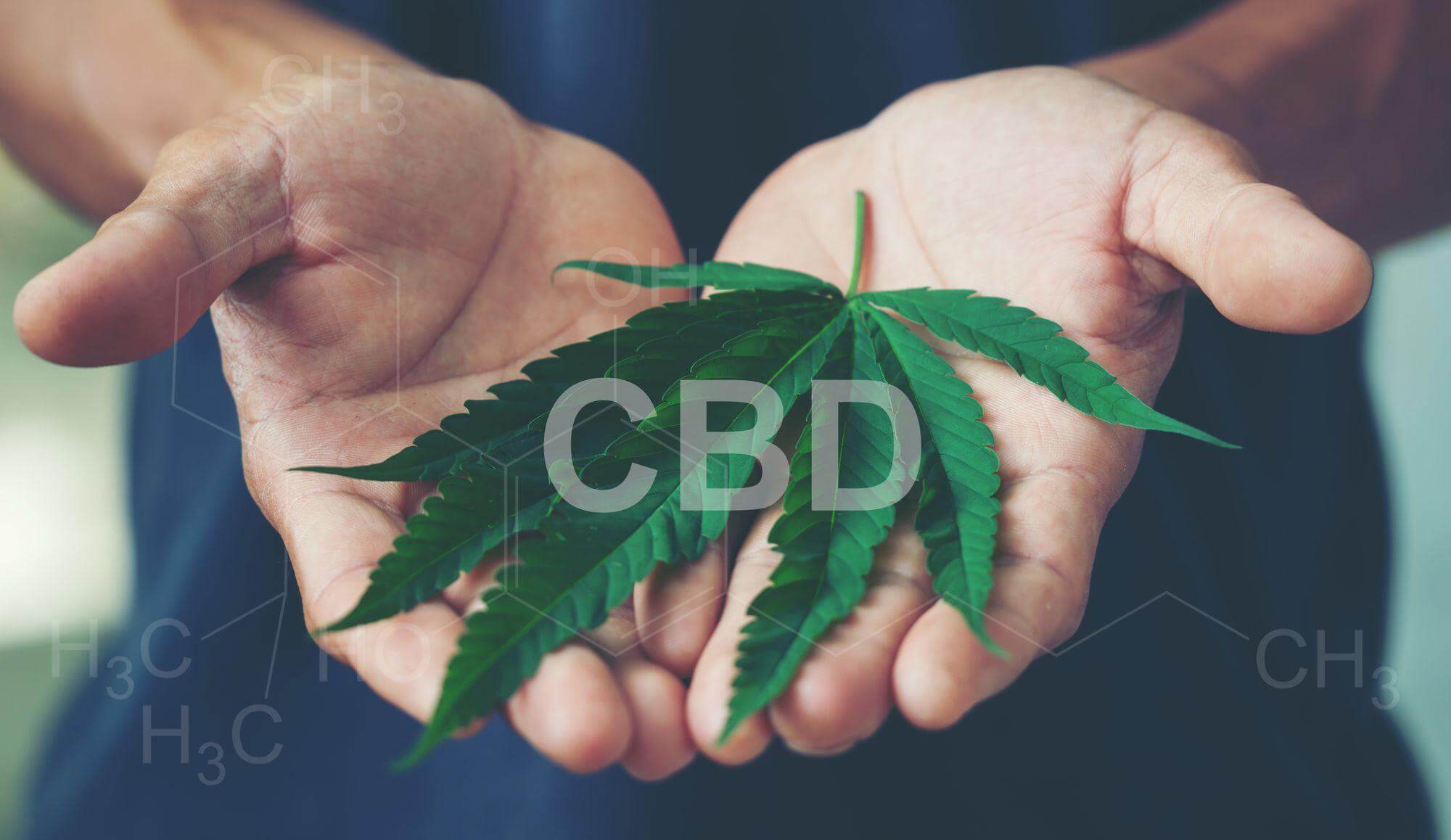
Cannabidiol or CBD is one of the most known cannabinoids next to THC. Like THC, the effects on the body vary by person, dose, and method of use.
Short Term Effects Of CBD
The most common short-term effects of CBD include,
- Drowsiness (in higher doses)
- Relieve inflammation
- Reduce seizures
- Improve mobility
- Ease anxiety
- Enhance mood
There are some mild negative side effects of CBD, such as
- Upset stomach
- Increased aggression
- Reduced alertness
- Diarrhea
A recent study, “Cannabidiol in Anxiety and Sleep: A Large Case Series” in The Permanente Journal, found long-term use of 10mg to 400 mg per day was safe and didn’t create a “toxic” effect on patients.
There are few long-term studies of CBD. The use of cannabinoids are becoming more accepted by medical communities around the world.
More research will be available as more patients begin and continue using CBD to replace medications with fewer side effects.
Physicians will have a plethora of data about the short-and long-term effects of different CBD doses.
Conclusion
Marijuana can be detected in your system after weeks to months depending on the cannabis strain, potency and the user.
The fastest way to detect marijuana after consumption is with a saliva or breath test, but this only lasts up to 48 hours after use.
Blood and hair tests last up to two to three months after use.
THC is the main chemical compound used to detect marijuana consumption.
Exercise and hydrating can help eliminate THC from your body, but time is the only solution to this problem.
This article was researched using these and other references:
- Residual cannabis levels in blood, ural and oral fluid - Forensic Science
- Roadside Drug Testing - How long does cannabis and marijuana stay in your system? ADF.org.au
- How long does marijuana stay in your system? American Addiction Centers
- How long does marijuana stay in your blood? WeedMaps.com
- Australian Drug Testing - how long do drugs stay in your urine and blood? - PathWest
- Cannabis Effects, Withdrawal for marijuana in your system - Health NSW Gov

James King
James is an experienced writer and legal cannabis advocate in Australia. He answers all the questions about business, legalisation and medicinal cannabis.
Disclaimer: Cannabis Place are not doctors and we recommend consulting health professionals for accurate information. This site may contain information regarding drugs. This medicinal cannabis content is designed for an 18+ audience. Click here for our full disclaimer
